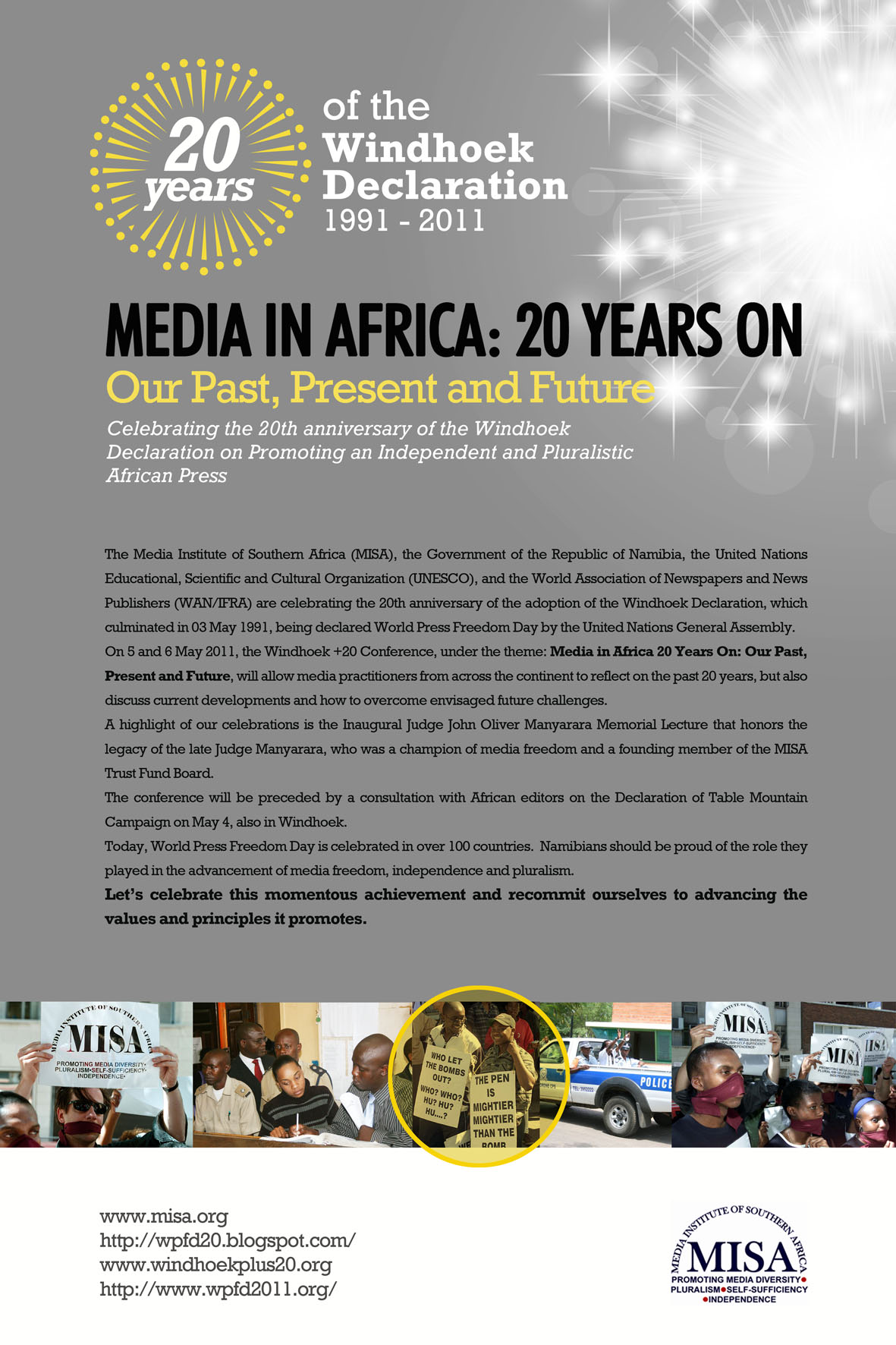Along with its development partners, MISA will host the Windhoek +20 Conference in Windhoek, under the theme: "Media in Africa 20 Years On: Our Past, Present and Future".
(MISA/IFEX) – April 27, 2011, Windhoek, Namibia – The Media Institute of Southern Africa (MISA), the Government of the Republic of Namibia, the United Nations Educational, Scientific and Cultural Organisation (UNESCO), and the World Association of Newspapers and News Publishers (WAN-IFRA) are celebrating the 20th anniversary of the adoption of the Windhoek Declaration, which culminated in 3 May 1991 being declared World Press Freedom Day by the United Nations General Assembly.
To assess the 1991 Windhoek Declaration in terms of African media history requires recognising that this seminal document came from the hearts of journalists. Generally around the world, but in Sub-Saharan Africa especially, journalism is bound up with idealism. This is notwithstanding the many persuasions and pressures that can lead its practitioners to fall short of the ideal. The desire to strive for the best applies to even the most constrained journalists, who – when they set aside any self-rationalisations – would invariably prefer to do the right thing journalistically. To this end, they hunger to be free of distorting controls by government officials, political owners or unscrupulous bosses. This idealistic motivation includes even the most underpaid reporter on a private outlet who persistently supplements his or her erratic income with bribes. It is also something which supercedes most other senses of identity that an African journalist may have, at least in terms of aspirations. It is central to the appeal of being a true journalist who works as a professional to serve the noble cause of circulating information in the public interest. It is this idealism that underpins the power of the Windhoek Declaration.
For this reason MISA will, along with its development partners, host the Windhoek +20 Conference, under the theme: “Media in Africa 20 Years On: Our Past, Present and Future”, in Windhoek on 5 and 6 May 2011. In doing so, MISA hopes to provide a platform to allow media practitioners from across the continent to reflect on the past 20 years, but also discuss current developments and how to overcome envisaged future challenges.
A highlight of our celebrations is the Inaugural Judge John Oliver Manyarara Memorial Lecture that honours the legacy of the late Judge Manyarara, who was a champion of media freedom and a founding member of the MISA Trust Fund Board.
The conference will be preceded by a consultation with African editors on the Declaration of Table Mountain campaign on May 4, also in Windhoek.
Today, World Press Freedom Day is celebrated in over 100 countries. Namibians should be proud of the role they played in the advancement of media freedom, independence and pluralism.
We take this opportunity to call on all journalists, media workers and media houses in Namibia and around the world to celebrate this momentous achievement and recommit themselves to advancing the values and principles it promotes.



